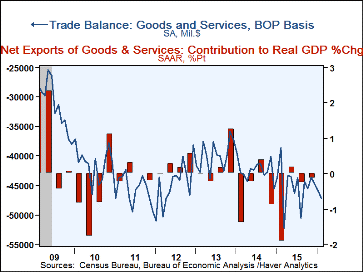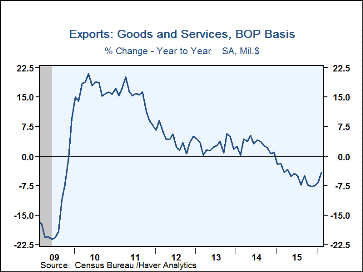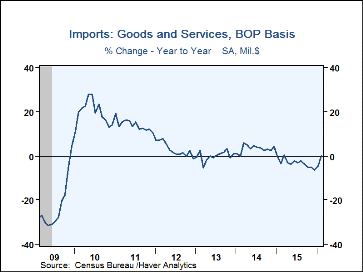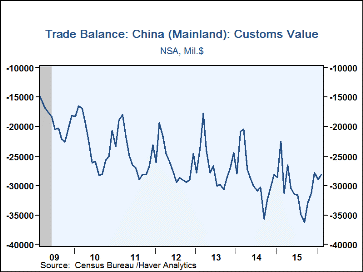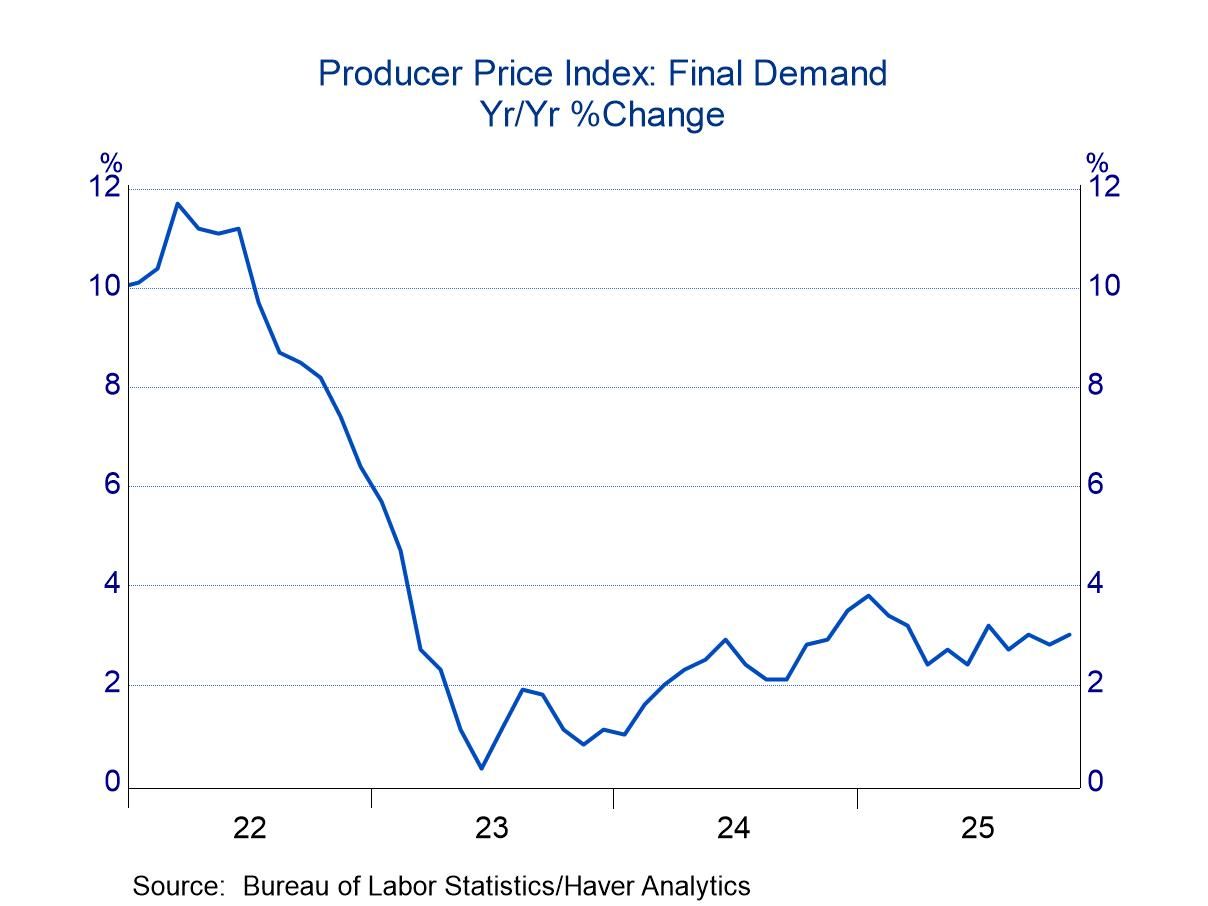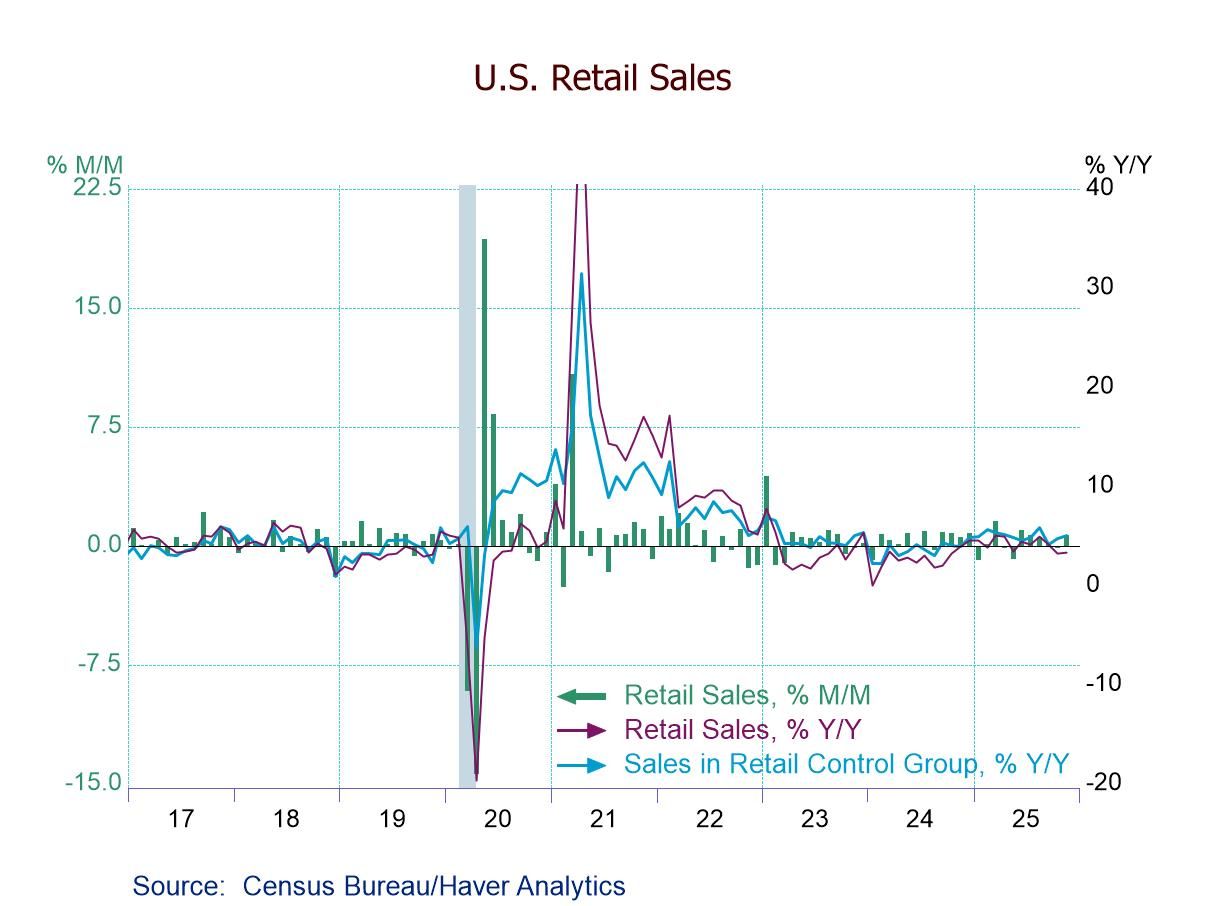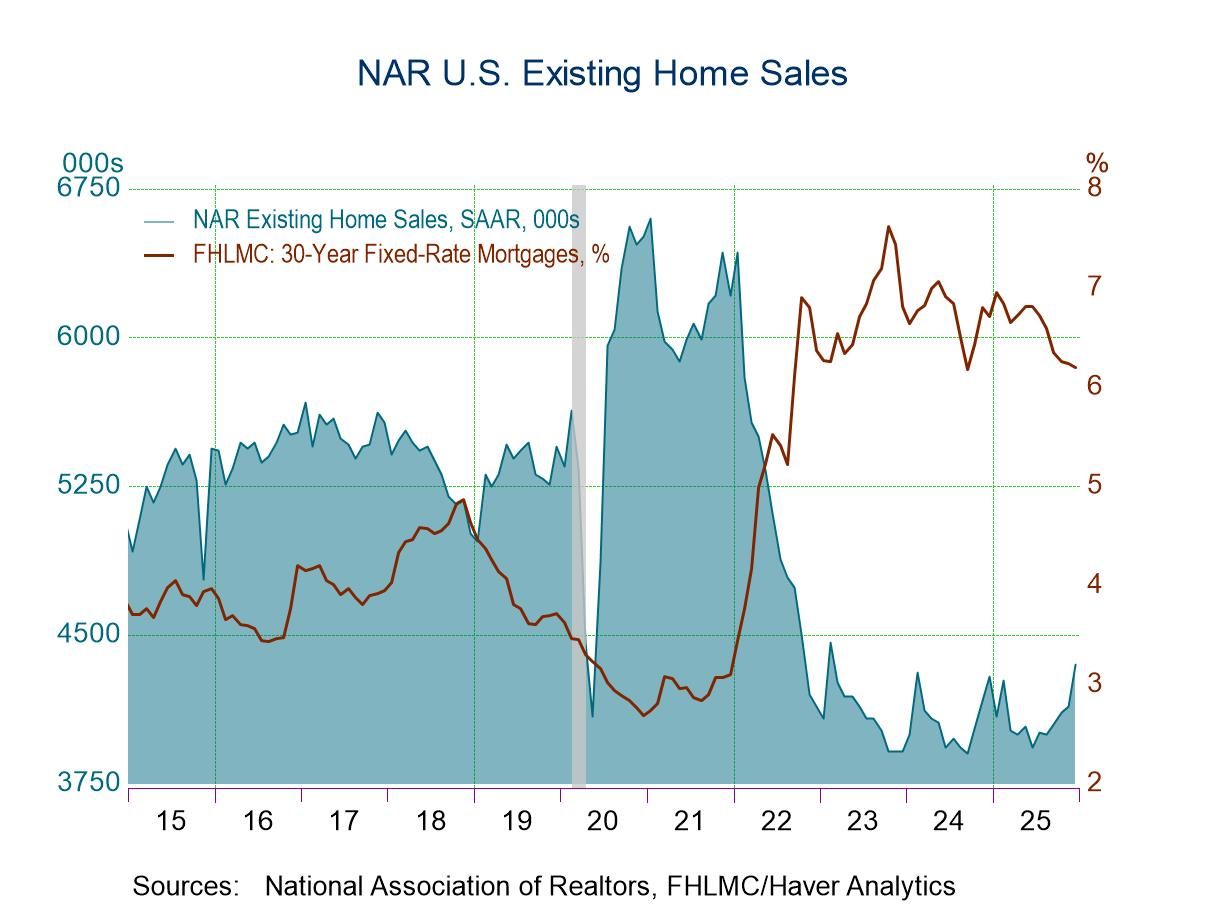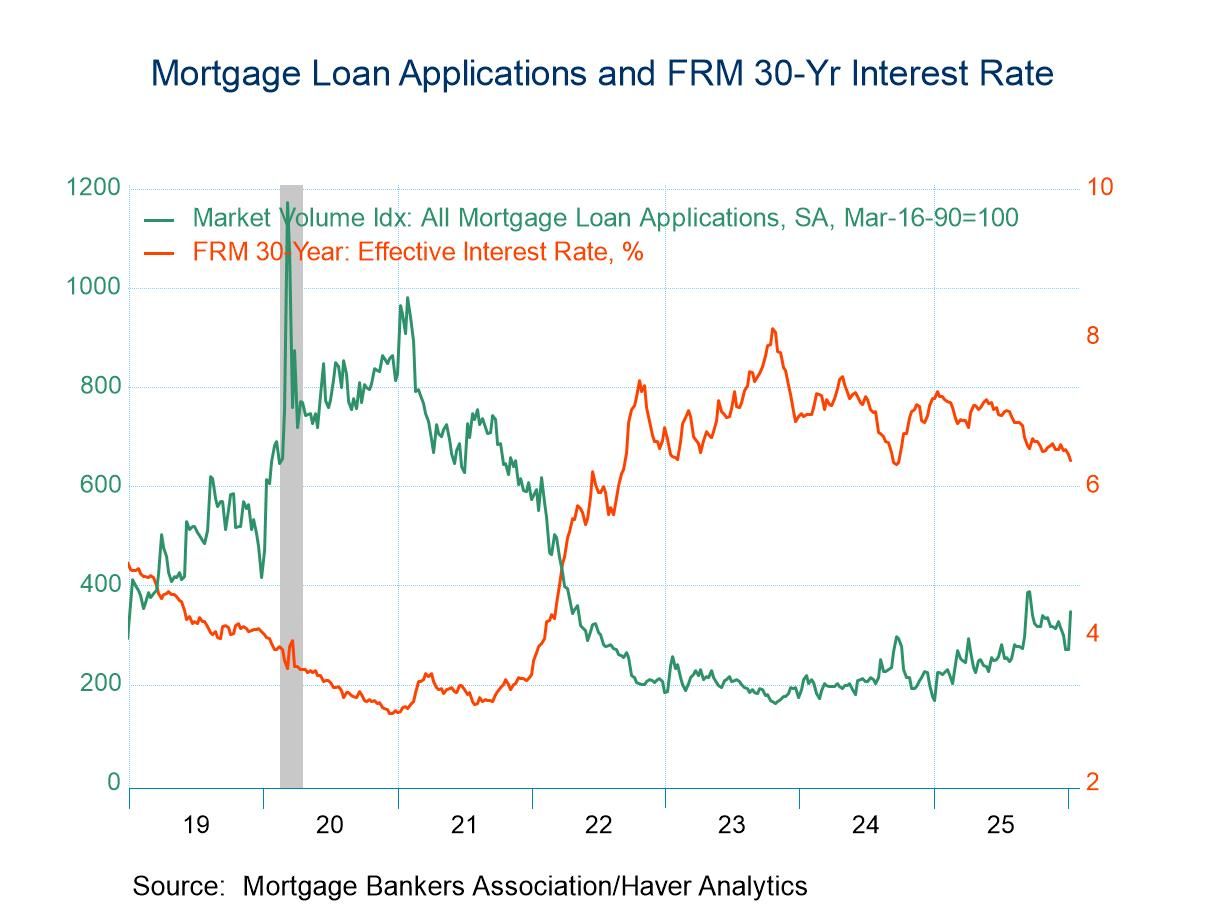 Global| Apr 05 2016
Global| Apr 05 2016U.S. Trade Deficit Widens to Six-Month High
by:Tom Moeller
|in:Economy in Brief
Summary
The U.S. foreign trade deficit increased to $47.1 billion during February from $45.9 billion in January, revised from $45.7 billion. It was the deepest trade deficit since August. A deficit of $46.2 billion was expected in the Action [...]
The U.S. foreign trade deficit increased to $47.1 billion during February from $45.9 billion in January, revised from $45.7 billion. It was the deepest trade deficit since August. A deficit of $46.2 billion was expected in the Action Economics Forecast Survey. Exports of goods & services increased 1.0% (-4.2% y/y) while imports rose 1.3% (0.3% y/y).
The trade deficit in goods widened to $64.7 billion from $63.9 billion. Goods exports increased 1.6% (-6.1% y/y) as nonauto consumer goods exports jumped 6.7% (-2.4% y/y). Auto & parts exports increased 2.8% (8.6% y/y) but capital goods exports were off 4.1% (-2.0% y/y). Foods, feeds & beverage exports fell 9.9% (-6.0% y/y) and exports of industrial supplies & materials declined 13.7% (-11.2% y/y). Imports of goods rose 1.5% (-0.6% y/y), fueled by a 7.5% surge (16.6% y/y) in nonauto consumer goods. Foods, feeds & beverage imports increased 4.6% (11.3% y/y) and capital goods imports gained 2.1% (4.6% y/y). Imports of autos & parts declined 5.0% (+11.9% y/y).
The dollar value of energy related imports declined 18.5% (-39.7% y/y) as the quantity fell 6.0% (+9.7% y/y). The dollar value of crude petroleum imports fell 18.8% (-38.0% y/y) while the per barrel cost of crude fell to $27.48 (-44.5% y/y).
The surplus in services trade declined to $17.7 billion from $18.0 billion. Exports of services eased 0.1% (-0.1% y/y) though travel exports jumped 1.2% (3.3% y/y). Financial services exports fell 0.9% ((-4.4% y/y) and transport services exports were off 2.7% (-5.9% y/y). Services imports gained 0.6% (4.4% y/y) as travel imports increased 1.0% (10.0% y/y). Transport services imports rose 0.9% (-0.5% y/y), but financial services imports were off 1.4% (+7.8% y/y).
By country, the trade deficit in goods with China eased to $28.1 billion from $28.9 billion in January. Exports to China fell 7.5% from a year ago, but imports were up 15.8% y/y. The trade deficit with Japan deepened to $5.3 billion from $4.9 billion; exports were down 1.3% from a year ago, but imports rebounded 11.9%. The deficit in goods trade with the European Union deepened to $9.9 billion. Exports to the EU increased 1.2% from a year ago, and imports increased 2.7% y/y.
The international trade data can be found in Haver's USECON database. Detailed figures are available in the USINT database. The expectations figures are from the Action Economics Forecast Survey, which is carried in the AS1REPNA.
| Foreign Trade in Goods & Services (Current Dollars) | Feb | Jan | Dec | Y/Y | 2015 | 2014 | 2013 |
|---|---|---|---|---|---|---|---|
| U.S. Trade Deficit | $47.1 bil. | $45.9 bil. | $44.7 bil. | $38.6 bil. (2/15) |
$539.8 bil. | $508.3 | $478.4 bil. |
| Exports of Goods & Services (% Chg) | 1.0 | -2.2 | -0.3 | -4.2 | -5.1 | 2.8 | 2.8 |
| Imports of Goods & Services (% Chg) | 1.3 | -1.2 | 0.2 | 0.3 | -3.1 | 3.4 | 0.1 |
| Petroleum | -11.8 | -13.7 | 1.7 | -39.8 | -45.5 | -9.7 | -11.0 |
| Nonpetroleum | 2.4 | -0.6 | 0.1 | 3.9 | 2.2 | 6.1 | 2.0 |
Tom Moeller
AuthorMore in Author Profile »Prior to joining Haver Analytics in 2000, Mr. Moeller worked as the Economist at Chancellor Capital Management from 1985 to 1999. There, he developed comprehensive economic forecasts and interpreted economic data for equity and fixed income portfolio managers. Also at Chancellor, Mr. Moeller worked as an equity analyst and was responsible for researching and rating companies in the economically sensitive automobile and housing industries for investment in Chancellor’s equity portfolio. Prior to joining Chancellor, Mr. Moeller was an Economist at Citibank from 1979 to 1984. He also analyzed pricing behavior in the metals industry for the Council on Wage and Price Stability in Washington, D.C. In 1999, Mr. Moeller received the award for most accurate forecast from the Forecasters' Club of New York. From 1990 to 1992 he was President of the New York Association for Business Economists. Mr. Moeller earned an M.B.A. in Finance from Fordham University, where he graduated in 1987. He holds a Bachelor of Arts in Economics from George Washington University.


